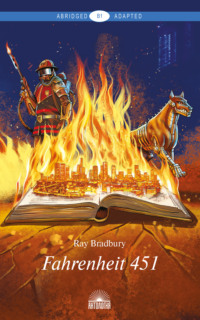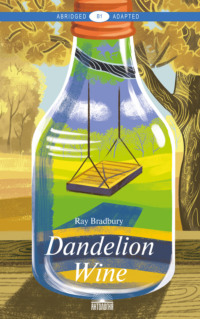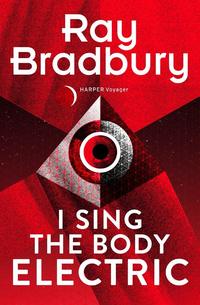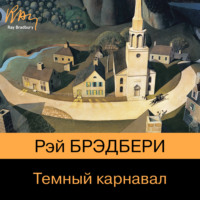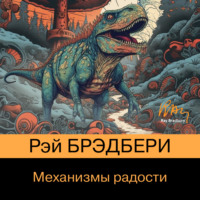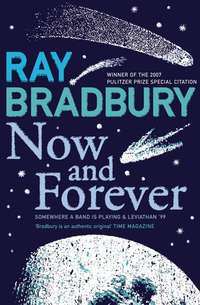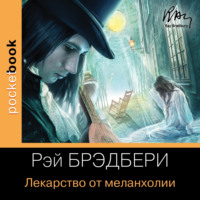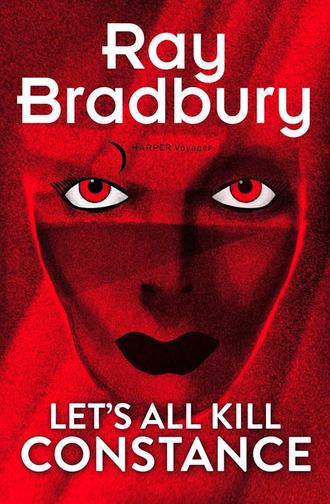
Полная версия
Let’s All Kill Constance
Crumley squinted. “Rattigan, Mount Lowe. What kind of Rattigan lives up on Mount Lowe? That’s where the big red trolley that’s been dead half my lifetime used to take thousands up for picnics.”
Memory shadowed Crumley’s face.
I touched another name.
“Rattigan. St. Vibiana’s Cathedral.”
“What kind of Rattigan, holy jumping Jesus, hides out in St. Vibiana’s Cathedral?”
“Spoken like a born-again Catholic.” I studied Crumley’s now-permanent scowl. “Want to know? I’m on my way.”
I took three false steps before Crumley swore. “How the hell you going to get there with no license and no car?”
I kept my back turned. “You’re going to take me.”
There was a long brooding silence.
“Right?” I prompted.
“You know how in hell to find where the Mount Lowe trolley once ran?”
“I was carried up by my folks when I was eighteen months old.”
“That means you can show the way?”
“Total recall.”
“Shut up,” said Crumley as he tossed a half-dozen bottles of beer into the jalopy. “Get in the car.”
We got in, left Gershwin to punch piano-roll holes in Paris, and drove away.
“Don’t say anything,” said Crumley. “Just nod your head left, right, or straight ahead.”
Chapter Eight
“I’ll be damned if I know why in hell I’m doing this,” Crumley muttered, almost driving on the wrong side of the street. “I said, I’ll be damned if I know why in hell—”
“I heard you,” I said, watching the mountains and the foothills coming closer.
“You know who you remind me of ?” Crumley snorted. “My first and only wife, who knew how to flimflam me with her shapes and sizes and big smiles.”
“Do I flimflam you?”
“Say you don’t and I’ll throw you out of the car. When you see me coming, you sit and pretend to be working a crossword puzzle. You’re maybe four words into it before I grab your pencil and shove you outta the way.”
“Did I ever do that, Crumley?”
“Don’t get me mad. You watching the street signs? Do so. Now. Tell me, why are you heading this damn-fool expedition?”
I looked at the Rattigan phone book in my lap. “She was running away, she said. From Death, from one of the names in this book. Maybe one of them sent it to her as a spoiled gift. Or maybe she was running toward them, like we’re doing, heading for one to see if he’s the sinner who dared to send tombstone dictionaries to impressionable child actresses.”
“Rattigan’s no child,” Crumley groused.
“She is. She wouldn’t’ve been so great up on the screen if she hadn’t kept one heckuva lot of her Meglin Kiddie self locked up in all those sexual acrobatics. It’s not the old Rattigan who’s scared here; it’s the schoolgirl in panic running through the dark forest, Hollywood, full of monsters.”
“You whipping up another of your Christmas fruitcakes full of nuts?”
“Does it sound like it?”
“No comment. Why would one of these red-lined friends send her two books full of lousy memories?”
“Why not? Constance loved a lot of people in her time. So, years later, one way or another, a lot of people hate her. They got rejected, left behind, forgotten. She got famous. They were found with the trash by the side of the road. Or maybe they’re real old now and dying, and before they go they want to spoil things.”
“You’re beginning to sound like me,” Crumley said.
“God help me, I hope not. I mean—”
“It’s okay. You’ll never be Crumley, just like I’ll never be Jules Verne Junior. Where in hell are we?”
I glanced up quickly.
“Hey!” I said. “This is it. Mount Lowe! Where the great old red trolley train fell down dead, a long time ago.
“Professor Lowe,” I said, reading some offhand memory from the dark side of my eyelids, “was the man who invented balloon photography during the Civil War.”
“Where did that come from?” Crumley exclaimed.
“It just came,” I said, unsettled.
“You’re full of useless information.”
“Oh, I don’t know,” I said, offended. “We’re here at Mount Lowe, right? And it’s named for Professor Lowe and his Toonerville Trolley scaling its heights, right?”
“Yeah, yeah, sure,” Crumley said.
“Well then, Professor Lowe invented hot-air balloon photography that helped catch enemy images in the great war of the states. Balloons, and a new invention, trains, won for the North.”
“Okay, okay,” Crumley grumbled. “I’m outta the car and ready to climb.”
I leaned out the car window and looked at the long weed-choked path that went up and up a long incline in evening’s gathering shadows.
I shut my eyes and recited. “It’s three miles to the top. You really want to walk?”
Crumley glared at the foothill.
“Hell, no.” He got back in the car and banged the door shut. “Is there any chance we could run off the edge of that damn narrow path? We’d be goners.”
“Always the chance. Onward!”
Crumley edged our jalopy to the foot of the mostly blind path, cut the engine, got out, walked over, kicked some dirt, and pulled some weeds.
“Hallelujah!” he exclaimed. “Iron, steel! The old rail track, didn’t bother to yank it out, just buried it!”
“See?!” I said.
His face crimson, Crumley plunged back in, almost submerging the car.
“Okay, smart-ass! Damn car won’t start!”
“Put your foot on the starter!”
“Damn!” Crumley stomped the floorboard. The car shimmied.
“Double-damn smart-ass kids!”
We ascended.
Chapter Nine
The way up the mountain was a double wilderness. The dry season had come early and burned the wild grass to sere crispness. In the rapidly fading light the whole hillside up to the peak was the color of wheat, fried by the sun. As we rode, it crackled. Two weeks before, someone had tossed a match and the whole foothill had exploded in flame. It was headlined in the papers and lit the television news, the flames were so pretty. But now the fire was gone and the chars and dryness with it. There was a dead-fire smell as Crumley and I threaded the lost path winding up Mount Lowe.
On the way, Crumley said, “It’s good you can’t see over my side. A thousand-foot drop.”
I clutched my knees.
Crumley noticed. “Well, maybe only a five-hundred-foot drop.”
I shut my eyes and recited off my clenched eyelids.
“The Mount Lowe railway was part electric, part cable car.”
Crumley, made curious, said, “And?”
I unclenched my knees.
“The railway opened July Fourth, 1893, with free cake and ice cream and thousands of riders. The Pasadena City Brass Band rode the first car playing ‘Hail, Columbia.’ But considering their passage into the clouds, they had shifted to ‘Nearer My God to Thee,’ which made at least ten thousand people along the way cry. Later in the ascension they decided to do ‘Upward, Always Upward’ as they reached the heights. They were followed in three cable cars by the Los Angeles Symphony; the violins in one car, the brass in a second, and the timpani and woodwinds in the third car. In the confusion, the conductor was left behind with his baton. Later in the day the Salt Lake City Mormon Tabernacle Choir ascended, also in three cars; sopranos in one, the baritones in another, and the bass in the third. They sang ‘Onward, Christian Soldiers,’ which seemed very appropriate as they vanished in the mist. It was reported that ten thousand miles of red, white, and blue bunting covered all of the trolleys and the trains and the cable cars. When the day was finally over, one semihysterical woman who admired Professor Lowe for what he had done to bring about the creation of the Mount Lowe railway and its taverns and hotels was quoted as saying, ‘Praise God from whom all blessings flow and also praise Professor Lowe,’ which made everyone cry again,” I babbled on.
Crumley said, “I’ll be damned.”
I added, “The Pacific Electric Railway ran to Mount Lowe, the Pasadena Ostrich Farm, Seleg Lion Zoo, San Gabriel Mission, Monrovia, Baldwin’s Ranch, and Whittier.”
Crumley mumbled under his breath and drove on in silence.
Taking that as a hint, I said, “Are we there yet?”
“Cowardly custard,” said Crumley. “Open your eyes.”
I opened my eyes.
“I think we’re there.”
And we were. For there stood the ruins of the old rail station, and beyond that, a few charred struts of the burned pavilion.
I got out slowly and stood with Crumley surveying miles of land that went forever to the sea.
“Cortés never saw better,” said Crumley. “View’s great. Makes you wonder why they didn’t rebuild.”
“Politics.”
“Always is. Now, where in hell do we find someone named Rattigan in a place like this?”
“There!”
Some eighty feet away, behind a huge spread of pepper trees, was a small cottage half-sunk in the earth. Fire hadn’t touched it, but rain had worn its paint and battered its roof.
“There’s got to be a body in there,” Crumley said as we walked toward it.
“Isn’t there always a body, or else why come see?”
“Go check. I’ll stand here hating myself for not bringing more booze.”
“Some detective.” I ambled over to the cottage and had one helluva time yanking its door wide. When it finally whined and gave way, I lurched back, afraid, and peered in.
“Crumley,” I said at last.
“Yeah?” he said, sixty feet away.
“Come see.”
“A body?” he said.
“Even better,” I said in awe.
Chapter Ten
We entered a labyrinth of newsprint. A labyrinth; hell, a catacomb with narrow passages between stacks of old newspapers—the New York Times, the Chicago Tribune, the Seattle News, the Detroit Free Press. Five feet on the left, six on the right, and a pathway between which you might jockey through, fearful of avalanches that could crush and kill.
“Holy magoly!” I breathed.
“You can say that again,” Crumley groused. “Christ, there must be ten thousand Sunday and daily papers stacked here, in layers—look, yellow down below, white on top. And not just one stack, ten dozen—my God, a hundred!”
For indeed the catacomb of newsprint hollowed back through twilight shadow to curve out of sight.
It was a moment, I later said, like Lord Carnarvon opening Tut’s tomb in 1922. All those ancient headlines, those obituary piles, that led to what? More news stacks and more beyond. Crumley and I sidled through with hardly enough space for bellies or behinds.
“God,” I whispered, “if ever a real earthquake hit—”
“It did!” came a voice from far down the stacked tunnel of print. A mummy cried. “Kicked the stacks! Almost pancaked me!”
“Who’s there?” I called. “Where in hell are you?”
“A great maze, yeah?” The mummy’s voice yelled in glee. “Built it myself ! Morning extra by night final, race specials, Sunday comics, you name it! Forty years! A museum library of news, unfit to print. Keep moving! Around the bend to your left. I’m here somewhere!”
“Move!” Crumley panted. “There’s gotta be a space with fresh air!”
“That’s it!” the dry voice called. “You’re close. Bear left. Don’t smoke! Damn place’s a firetrap of headlines: ‘Hitler Takes Power,’ ‘Mussolini Bombs Ethiopia for Kindling,’ ‘Roosevelt Dead,’ ‘Churchill Builds Iron Curtain,’ swell, huh?”
We turned a final corner among tall flapjack stacks of print to find a clearing in the forest.
On the far side of the clearing was an army cot. On the cot lay what seemed a long bundle of beef jerky or a mummy rampant from the earth. There was a strong smell. Not dead, I thought, not alive.
I approached the cot slowly, with Crumley behind. I knew the odor now. Not death, but the great unwashed.
The rag bundle stirred. Some ancient blanket shreds flaked from a face like watermarks on mud shallows. A faint crack of light glinted between two withered lids.
“Pardon my not rising,” the withered mouth trembled. “Chez Monsieur from Armentières, haven’t got up in forty years.” It cackled a cackle that almost killed it. It began to cough.
“No, no, I’m okay,” it whispered. The head fell back. “Where the hell you been?”
“Where …?”
“I been expecting you!” said the mummy. “What year is it? 1932? 1946? 1950?”
“You’re getting warmer.”
“1960. Howzat?”
“Bull’s-eye,” said Crumley.
“I’m not all crackers.” The old man’s dry dust mouth quavered. “You bring my vittles?”
“Vittles?”
“No, no, couldn’t be. It’s a kid, totes the dog food through that Grub Street newsprint alley, can by can, or the whole damn thing falls. You’re not him—or he?”
We glanced behind and shook our heads.
“How you like my penthouse? Original meaning: place where they used to pent up people so they couldn’t run amok. We gave it a different meaning and raised the rent. Where was I? Oh, yeah. How you like this joint?”
“A Christian Science reading room,” said Crumley.
“Darn tootin’,” said Ramses II. “Started 1925. Couldn’t stop. Smash and grab, not much smash, mainly grab. It all started one day when I forgot to throw out the morning papers. Next thing there was a week collected and then more Tribune/Times/Daily News trash. That there on your right is 1939. On the left: 1940. One stack back: ’41. Neat!”
“What happens if you want a special date and it’s four feet down?”
“I try not to figure that. Name a date.”
“April ninth, 1937,” leaped off my tongue.
“Why the hell that?” said Crumley.
“Don’t stop the boy,” came the whisper from under the dust blanket. “ ‘Jean Harlow, dead at twenty-six. Uremic poisoning. Services mañana. Forest Lawn. Nelson Eddy, Jeanette MacDonald duet at the obsequies.’ ”
“My God!” I exploded.
“Pretty damn smart, huh? More!”
“May third, 1942,” popped from my mouth.
“ ‘Carole Lombard killed. Air crash. Gable weeps.’ ”
Crumley turned to me. “Is that all you know? Dead film stars?”
“Don’t fret the kid,” said the old voice six feet under. “What you doing here?”
“We came—” said Crumley.
“It’s about—” I said.
“Don’t.” The old man whirled a dust storm of thoughts. “You’re a sequel !”
“Sequel?”
“Last time anyone climbed Mount Lowe looking to jump off, he failed, went back down, and was hit by a car that cured his living. Last time someone really came was … noon today!”
“Today!?”
“Why not? Come find the old crock, drowned in dust, no rolls in the hay since ’32. Someone did come a few hours ago, shouted down those tunnels of bad news. Recall that fairy tale porridge mill? Say ‘go!’ it made hot porridge. Kid got it started. Forgot the ‘stop’ word. Damn porridge flooded the whole town. People ate their way door-to-door. So I got newsprint, not porridge. What did I just say?”
“Someone shouted down—”
“The corridor between the London Times and Le Figaro? Yeah. Woman, braying like a mule. Yells emptied my bladder. Threatened to tiddlywink my stacks. One shove and it’s dominoes, she screamed, whole damn print architecture squashes me!”
“I should think earthquakes—”
“Had ’em! Shook the hell out of ‘Yang-Tse River Deluge’ and ‘Il Duce Conquers,’ but here I am. Even the big one, in ’32, didn’t kick my poker stacks. Anyway, this wild woman screamed all my vices and demanded certain papers from special years. I said try first row on the left, then the right; I keep all the raw stuff high. I heard her wrestle the stacks. Her cursing could have set ‘London on Fire!’ She slammed the door, skedaddled, looking for a place to jump. I don’t think a car got her. Know who she was? I been holding out on you. Guess?”
“I can’t,” I said, stunned.
“See that desk there in cat litter? Scrap the litter, lift the stuff with fancy type.”
I stepped to the desk. Under a tangle of sawdust and what seemed to be bird droppings, I found two dozen identical invitations.
“ ‘Clarence Rattigan and—’ ” I paused.
“Read it!” said the old man.
“ ‘Constance Rattigan,’ ” I gasped, and went on. “ ‘Are pleased to announce their marriage atop Mount Lowe, June tenth, 1932, at three in the afternoon. Motor and rail escorts. Champagne following.’”
“That hit you where you live?” said Clarence Rattigan.
I glanced up.
“Clarence Rattigan and Constance Rattigan,” I said. “Hold on. Shouldn’t Constance’s maiden name be listed?”
“Looks like incest, you mean?”
“Strange peculiar.”
“You don’t get it,” the lips husked. “Constance made me change my name! It was Overholt. She said she was damned if she’d give up her first-class moniker for a second-rate hand-me-down, so—”
“You got baptized before the ceremony?” I guessed.
“Never was but finally did. Episcopal deacon down in Hollywood thought I was nuts. You ever try to argue with Constance?”
“I—”
“Won’t take yes for an answer! ‘Love Me or Leave Me,’ she sang. I liked the tune. Hit me with the baptismal oil, laid on the unction. First damn fool in America to burn his birth certificate.”
“I’ll be damned,” I said.
“No. Me. What you staring at?”
“You.”
“Yeah, I know,” he said. “I don’t seem like much. Wasn’t much then. See that bright doohickey on top o’ the invites? Mount Lowe train motorman’s brass handle. Rattigan liked the way I banged that brass. Me, the motorman on the Mount Lowe trolley! Jesus! Is there any beer anywhere?” he added suddenly.
I gathered my spit. “You claim you were Rattigan’s first husband and then ask for beer?”
“I didn’t say I was her first husband, just one of some. Where’s that beer?” The old man gummed his lips.
Crumley sighed and pulled some stuff from his pockets. “Here’s beer and Mallomars.”
“Mallomars!” The old man stuck out his tongue and I placed one on it. He let it melt on his tongue like a Jesus wafer. “Mallomars! Women! Can’t live without ’em!”
He half sat up for beer.
“Rattigan,” I urged.
“Oh, yeah. Marriage. She rode up on the trolley and went wild with the weather, thought it was my creation, proposed, and after our honeymoon, one night, found out I had nothing to do with the climate, grew icicles, and vamoosed. My body will never be the same.” The old man shivered.
“Is that all?”
“What d’ya mean, all?! You ever throw her two falls out of three?”
“Almost,” I whispered.
I pulled out Rattigan’s phone book. “This clued us onto you.”
The old man peered at his name circled in red ink. “Why would someone send you here?” He mused over another swallow. “Wait! You some sort of writer?”
“Some sort.”
“Well hell, that’s it! How long you known her?”
“A few years.”
“A year with Rattigan’s a thousand and one nights. Lost in the Fun House. Hell, son. I bet she red-circled my name because she wants you to write her autobiography. Starting with me, Old Faithful.”
“No,” I said.
“She ask you to take notes?”
“Never.”
“Damn, wouldn’t that be great? Anyone ever written a book wilder than Constance, more wrathful than Rattigan? A bestseller! Lie down with Rattigan, get up with sequined fleas. Run down the hill, sign a publisher! I get royalties for revelations! Okay?”
“Royalties.”
“Now gimme another Mallomar, more beer. You still need more guff?”
I nodded.
“That other table …” An orange crate. “A list of wedding guests.”
I went to the orange crate and riffled through some bills until I found one piece of quality paper and peered at it as he said, “You ever wonder where the name California came from?”
“What’s that—”
“Pipe down. The Hispanics, when they marched north from Mexico in 1509, carried books. One published in Spain had an Amazon queen ruling in a land of milk and honey. Queen Califia. The country she ruled was named California. The Spaniards took one look down this here valley, saw the milk, ate the honey, and named it all—”
“California?”
“So, check that guest list.”
I looked and read: “Califia! My God! We tried to call her today! Where is she now?”
“That’s what the Rattigan wanted to know. It was Califia predicted our predestined marriage, but not our downfall. So Rattigan trapped me with a hammerlock and mobbed this place with bums and bad champagne, all because of Califia. ‘Where the hell is she?’ she shouted today, down the tunnel of newsprint. ‘You would know!’ she yelled. ‘Not guilty!’ I yelled back up the tunnel. ‘Go, Constance! Califia ruined us both. Go kill her, then kill her again. Califia!’”
The mummy fell back, exhausted.
“You said all that,” I asked. “At noon today?”
“Some such,” sighed the old man. “I sent Rattigan off for blood. I hope she finds that damned half-ass-trologer and …” His voice wandered. “More Mallomars?”
I laid the cookie on his tongue. It melted. He talked fast.
“You wouldn’t think it to see this boneless wonder, but I got half a mil in the bank. Go see. I mouth-to-mouth-breathed Wall Street stocks not dead, just asleep. From 1941 through Hiroshima, Enewetak, and Nixon. I said buy IBM, buy Bell. Now I got this great spread with a view overlooking L.A., a one-holer Andy Gump behind, and the Glendale Market, well tipped, sends up a kid with Spam, canned chili, and bottled water! The life of Riley! You guys done shadow-boxing my past?”
“Almost.”
“Rattigan, Rattigan,” the old man went on. “Good for a few hoots and raucous applause. She was written up in those papers from time to time. Grab one paper off the top of each stack, four on the right, six on the left, all different. She left snail-track spoors on the path to Marrakech. Today she came back to clean her catbox.”
“Did you actually see her?”
“Didn’t need to. That yell would split Rumpelstiltskin and sew him back up.”
“Is that all she wanted, Califia’s address?”
“And the papers! Take ’em and go to hell. It’s been a long divorce with no surcease.”
“Can I have this?” I lifted an invitation.
“Take a dozen! Only ones showed up were Rattigan’s Kleenex guys. She used to wad and throw ’em over her shoulder. ‘You can always order more,’ she said. Grab the invites. Steal the newsprint. What did you say your name was?”
“I didn’t.”
“Thank God! Out!” said Clarence Rattigan.
Crumley and I threaded our way, gingerly, through the labyrinthine towers, borrowed copies of eight different newspapers from eight different stacks, and were about to head out the front door when a kid with a loaded box barred our way.
“What you got there?” I said.
“Groceries.”
“Mostly booze?”
“Groceries,” the kid said. “He still in there?”
“Don’t come back!” King Tut’s voice cried from deep down far away in the newsprint catacomb. “I won’t be here!”
“He’s there, all right,” said the kid, two shades paler.
“Three fires and an earthquake! One more ahead! I feel it coming!” The mummy’s voice faded.
The kid looked at us.
“It’s all yours.” I stepped back.
“Don’t move, don’t breathe.” The kid put one foot inside the door.
Crumley and I didn’t move, didn’t breathe.
And he was gone.
Chapter Eleven
Crumley managed to swerve his wreck around and head us back downhill without falling off the edge. On the way, my eyes brimmed.
“Don’t say it.” Crumley avoided my face. “I don’t want to hear.”
I swallowed hard. “Three fires and an earthquake. And more coming!”
“That did it!” Crumley hit the brakes. “Don’t say what you think, dammit. Sure, another quake’s coming: Rattigan! She’ll rip us all! Out, out, and walk!”
“I’m afraid of heights.”
“Okay! Zip your lip!”
We drove down beneath twenty thousand leagues of silence. Out on the street, in traffic, I scanned the newspapers, one by one.
“Hell,” I said, “I wonder why he let us have these?”
“Whatta you see?”



